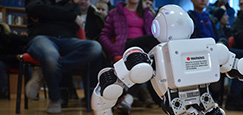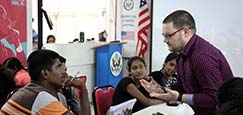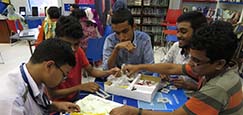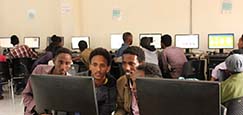Toolkits
- English Learning
- Student-Led Conversation Club Toolkit – Designed by an American student for American students, this toolkit provides resources and best practices to run student-led conversations in person or virtually with American Spaces audiences.
Bureau of Education and Cultural Affairs (ECA)
- American English – Resources for teachers and students of English as a foreign language
- English Language Programming – a Global Guide for English Language Programming
- English Club Manuals – Guides for creating, managing, and facilitating English clubs
- Trace Effects – Video game for learning American English and culture
- English Teaching Forum – Quarterly journal for English teachers
- ECA Office of English Language Programs – Information on ECA exchange programs
ShareAmerica (GPA)
- Articles for English Practice: These brief articles about American life can be used in English conversation clubs or for individual practice.
Voice of America (VOA)
- Let’s Learn English – 52-week course for beginners; includes videos, transcripts, key vocabulary, worksheets, and lesson plans
- English in a Minute Videos – 1-minute downloadable videos explaining American English expressions
- Everyday Grammar TV – 2-minute downloadable videos explaining American-English grammar
English Language Programming Options in American Spaces
English Language Clubs run by volunteers are often some of the most successful and popular activities. Exchange alumni, English teachers and other English speakers in the area are excellent resources to facilitate regular meetings of English-language clubs. Interest-based clubs can allow American Spaces to reach a broad audience with diverse language levels: debate clubs, drama clubs, Toastmasters, Model UN clubs, music clubs, and book clubs to name a few.
Guest Speakers provide a glimpse of American culture while giving visitors a chance to practice English listening and speaking skills with native speakers of American English. Embassy officers, eligible family members, Peace Corps Volunteers, and other Americans in the area are good choices for English-language, cultural presentations.
Interactions with U.S. Government Exchange Participants are great opportunities for “language exchange,” in which host-country nationals speak in English while their American counterparts speak in the host-country language.




